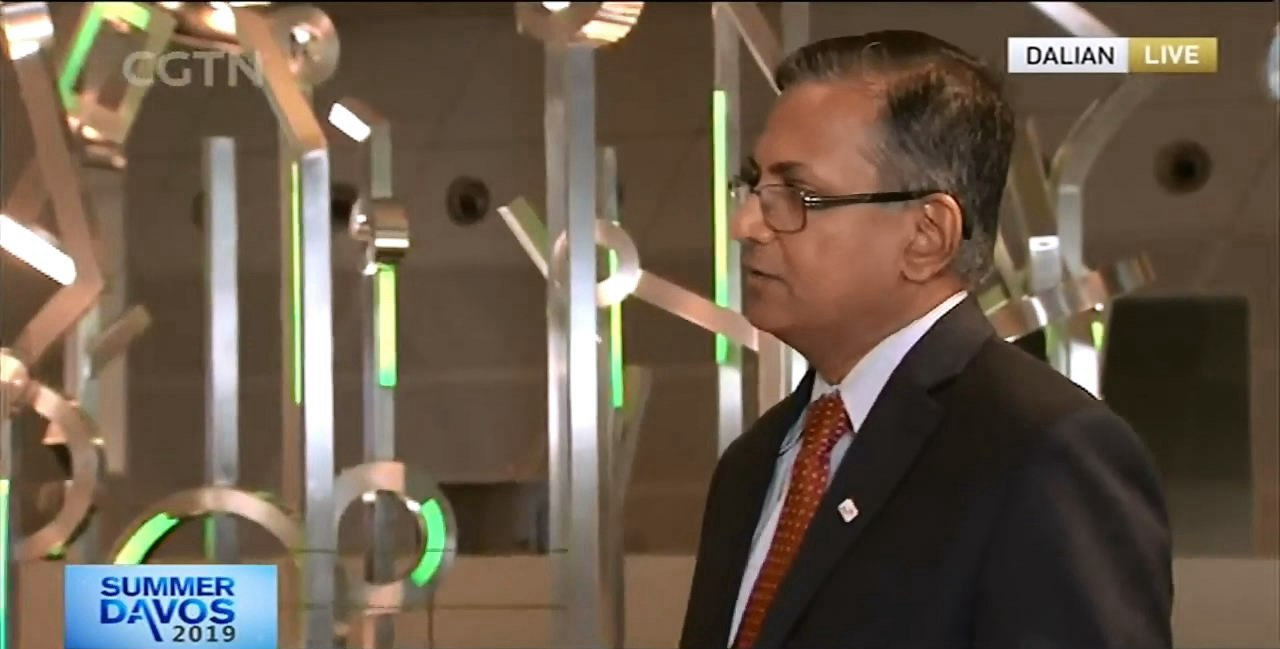

The Summer Davos in China's northeastern city of Dalian is a platform for advanced technology display, particularly artificial intelligence (AI). Professional services firm PwC stated that AI can bring forth limitless potential to push society forward.
Used wisely, AI can create huge benefits for businesses, governments and individuals worldwide. Based on PwC's research, AI could contribute 15.7 trillion U.S. dollars to the global economy by 2030. And 72 percent of CEOs surveyed believe that AI would significantly change the way they do business in the next five years.
However, Anand Rao, Global Artificial Intelligence Leader at PwC United States, said that if AI-related data was misused by some companies, "not for the value of general consumers but for shareholders," it would result in intelligent divide.
"Fewer and fewer people and companies are garnering more of GDP and outputs," he said. Rao stressed that both opportunities and risks should be taken into consideration, and advised people to "mitigate risks before it [becomes a] big issue."

Anand Rao, Global Artificial Intelligence Leader at PwC United States /CGTN Photo
Rao believed that AI solutions are transforming industries including the creative industry, and impacting everything from customer service and sales to back office automation.
In terms of challenges in AI area, the notion of trust is a big issue that insiders are discussing, according to Rao. Concerns have grown over how AI could impact privacy, cybersecurity, employment, inequality and the environment. And PwC's AI research showed that major executives considered ensuring "AI systems are trustworthy" as their top challenge for 2019.
As the machine learning in AI is all about the data, "the one who has more data tends to be the one who has more easily been the adopter by people," Rao said.
"There is a cycle: You have lots of data, your learning score is better and your personalization is better, so more customers come to you and then you get more data," Rao explained.
Moreover, Rao said that it is difficult for AI to understand human value at this moment. “AI cannot come up with values. And we as human are not very good at communicating values either. There is a problem called value alignment. Values that we have as humans may not match the value of what we tell the AI or robot to [have],” he explained.
He added, "The entire research area around value alignment is looking at some learning accordance that we can essentially give AI all happening around behavior and what people do. And let’s see whether AI can pick up the values and infer the values."

Copyright © 2018 CGTN. Beijing ICP prepared NO.16065310-3
Copyright © 2018 CGTN. Beijing ICP prepared NO.16065310-3